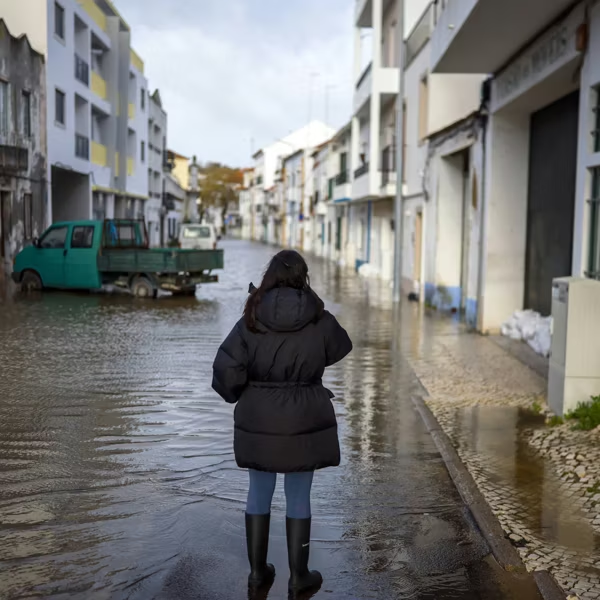"We do not inherit the Earth from our ancestors, we borrow it from our children," is an oft-quoted proverb, frequently used to explain the importance of environmental preservation. Unsaid, however, is how much it will impact the next generation if the Earth is bequeathed in a lesser state.
Environmental campaigners NextGen Climate and public policy group Demos published a new study that attempts to quantify the true cost of not addressing climate change to the millennial generation and their children.
The Price Tag of Being Young: Climate Change and Millennials' Economic Future (pdf) compares some of the high costs millennials will face in the "new inequality economy"--such as student debt, child care costs, stagnant wages, as well as financial and job insecurity--against the fiscal impacts of unmitigated global warming.
"The fact is," the report states, "unchecked climate change will impose heavy costs on millennials and subsequent generations, both directly in the form of reduced incomes and wealth, and indirectly through likely higher tax bills as extreme weather, rising sea levels, drought, heat-related health problems, and many other climate change-related problems take their toll on our society."
The impacts from climate costs alone, the report finds, are "comparable to Great Depression-era losses." The study employs a model developed by researchers from Stanford University and University of California at Berkeley that measures the effects of rising temperatures on long-term economic growth and national productivity drawing on 50 years of data from 166 countries.
The "no climate action" scenario found that by 2100 global per capita GDP will shrink by 23 percent relative to a scenario without climate change. The U.S. is estimated to take a 5 percent hit by 2050 that jumps to 36 percent by 2100 should no climate action occur.
This adds up to a loss of nearly $8.8 trillion in lifetime income for millennials and tens of trillions for their children.
"For the millennial generation, today's status quo on climate and inequality is not only unjust but it is also unsustainable."
In comparison, the cost of climate inaction overshadows the significant losses from other economic burdens, such as student debt. The report states:
According to Demos calculations, for a median- earning college graduate with median student debt, the lifetime wealth loss due to student debt is approximately $113,000, which is 40 percent less than the $187,000 lifetime wealth loss of a college- educated, median-earning 21-year-old if we fail to act on climate change.
But when these myriad forces are stacked together, they add up to a staggering burden. The report further highlights how climate inaction only exacerbates preexisting inequality:
Communities of color and low-income communities will be hit the hardest, as these communities have fewer resources to deal with the impacts of climate change [...]. Further, these same communities have always had the highest exposure to coal-burning power plants and other sources of fossil fuel pollution, with sharply negative health impacts [...]
If the transition to a clean energy economy is delayed, or if it is implemented unequally in keeping with historical patterns of racial exclusion, the fossil fuel economy will only deepen its toll on the health and well-being of America's poorest and most vulnerable communities.
What's more, the report notes, "the economic risks are compounded even further since inaction on climate change means that we are missing out on a major opportunity for much-needed new investment and millions of new jobs by transitioning to clean energy."
"For the millennial generation," the study concludes, "today's status quo on climate and inequality is not only unjust but it is also unsustainable."
Democratic heavyweight and NextGen Climate president Tom Steyer said the report underscores the importance of the upcoming presidential election between Democratic nominee Hillary Clinton and Republican Donald Trump.
"When we look at the consequences of this election, the choice between the candidates could not be more stark," Steyer said, "and the voice of millennial voters has never been more important."
Sara Jordan, policy manager at NextGen Climate agreed, writing, "Millennials have the numbers to elect climate champions this fall, but we have to show up to vote. Our future depends on it."



